Health
'Kill yourself'
Many nights after work, as people often do, Washington Nationals first baseman Nathaniel Lowe checks his social media accounts. Unlike most, however, Lowe must brace himself to find out which anonymous trolls, miscreants and provocateurs, at that very moment, want him dead. If the safe-word filters on his accounts do their job that night — […]
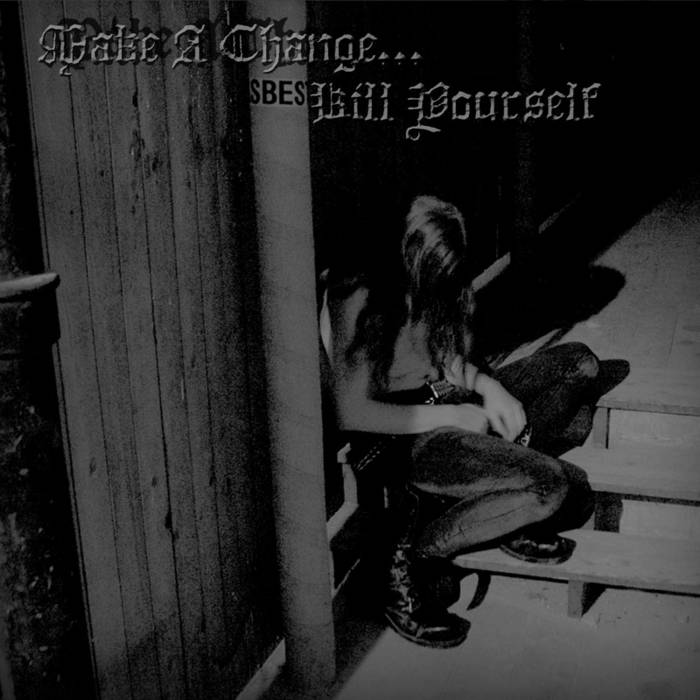
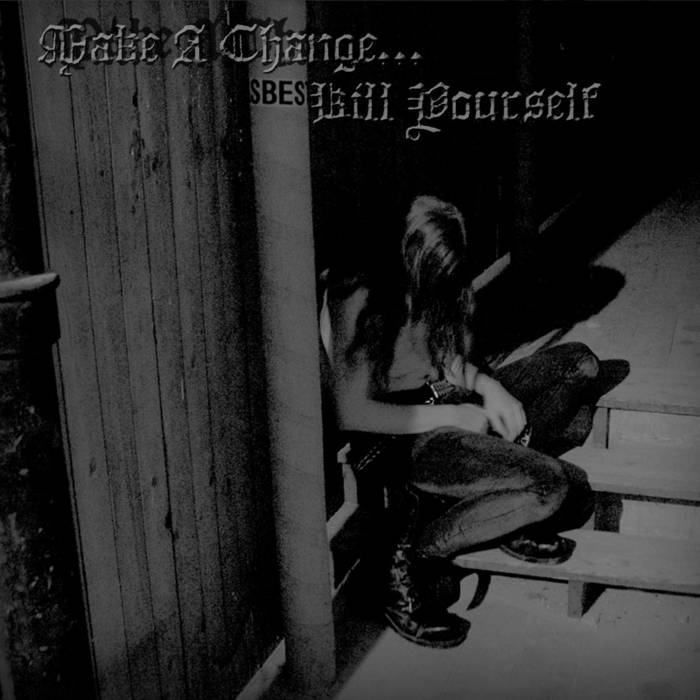

Many nights after work, as people often do, Washington Nationals first baseman Nathaniel Lowe checks his social media accounts. Unlike most, however, Lowe must brace himself to find out which anonymous trolls, miscreants and provocateurs, at that very moment, want him dead.
If the safe-word filters on his accounts do their job that night — and if Lowe happened to have excelled at his job, at least relative to the prop bets staked to his performance — the abuse might not be so bad. Otherwise?
“‘Kill yourself’ shows up pretty often,” said Lowe, who has won a Gold Glove, a Silver Slugger and a World Series in his career. Those kinds of messages, he added, are there “five days a week.”
Like many athletes, Lowe, 29, has come to view the nightly stream of online vitriol as another annoyance inherent to his line of work, no different from late-night flights and professional autograph-seekers.
“That’s just what you kind of sign up for,” Lowe said. “And that’s what gambling has brought into the game.”
But in recent months, as online sports betting continues to expand in the aftermath of a landmark 2018 Supreme Court ruling — Americans legally wagered a record $147.91 billion on sports last year — the problem of online threats and harassment of athletes by gamblers appears to have become more widespread, more specific and more sinister, alarming many in the sports industry, not least of all those on the receiving end.
“I understand people are very passionate and … love sports,” Houston Astros pitcher Lance McCullers Jr. told reporters recently after detailing death threats made against him and his family that were later traced to a bettor overseas. “But threatening to find my kids and murder them is a little bit tough to deal with.”
Famous athletes have long been subjected to verbal abuse by angry partisans, as any NFL kicker who has missed a game-winning field goal or any major European soccer player who has missed a penalty kick can attest. Horrifying incidents between athletes and deranged fans are nothing new, either, with the on-court stabbing of tennis star Monica Seles in 1993 perhaps the most vivid example.
But what is happening now, to athletes of all degrees of fame, feels like a distinctively modern problem, resulting from an explosive mixture of forces: the exponential growth, financial might and cultural penetration of the sports-gambling industry; the AI-driven ability of that industry to deliver rapid, in-game gambling products via mobile devices; and the ubiquity of social media and the anonymity it provides while obliterating the barriers between athletes and fans. The dynamic is exacerbated by socioeconomic trends, such as the widening economic chasm between fans and athletes and the rampant disaffection sociologists have identified in young, online males.
“People get this idea, like, ‘This big baseball player making a great amount of money. … I see them out there living their lives happily with their family while they’re pitching poorly,’” Nationals right-hander Josiah Gray said. “So they say: ‘You shouldn’t be living happily with your family. You should be lamenting on your rough outing or your rough day at the plate.’ And then trying to ruin your day that way. It’s more [about] psychology and how players are easily accessible [through] social media.”
It is now commonplace, in fact, for gamblers to track down an athlete’s Venmo account and request money to cover the cost of a lost bet, often including a nasty or threatening message with their invoice. Occasionally, but far more rarely, an athlete picks up their phone to find a “tip” has been sent to their Venmo as thanks for a winning performance.
“That’s why I had to get rid of my Venmo — because I was either getting paid by people or people requesting me a bunch of money when I didn’t win. It wasn’t a good feeling,” golfer Scottie Scheffler said this week. Asked what was the most money a gambler sent him, the three-time major champion replied: “I don’t remember. Maybe a couple bucks here or there. That didn’t happen nearly as much as the requests did.”
Although little data exists to demonstrate the extent of the problem, recent polls and studies as well as anecdotal evidence suggest it is affecting athletes across the sports spectrum with increasing frequency.
A December study by four of the biggest tennis federations in the world found that angry gamblers were responsible for nearly half of the 12,000 abusive social media posts directed at tennis players that year.
A May 2024 NCAA study during that year’s men’s and women’s March Madness events found more than 4,000 instances of threatening or abusive social media posts or messages directed at athletes, with women three times as likely as men to be on the receiving end. (A subsequent NCAA-commissioned study of the 2025 tournaments, however, noted a 23 percent decline from 2024 in gambling-related abuse.)
And when the Athletic, in an informal poll this spring, asked 133 baseball players whether legalized sports betting has “changed how fans treat you or your teammates,” 78 percent answered yes.
Even athletes who at one time might have toiled in relative anonymity, such as offensive linemen and backup catchers, are now fair game to disgruntled bettors on the wrong end of a losing prop bet, placed on something as specific as a basketball player’s rebound total or the first player in a football game to score a touchdown.
“It’s definitely getting worse and worse — through every social media, people being in your DMs with death threats,” said Detroit Tigers backup catcher Jake Rogers, who said he received death threats this season despite having only 48 plate appearances as of Friday. “… You can ask every single guy in here, and they’ve gotten a really bad one, probably in the last week.”
Those types of findings do not surprise those who study the problem and those who are tasked with combating it.
“The speed of gambling, the intensity of gambling — they’ve increased exponentially. We’ve fundamentally changed the way people gamble,” said Harry Levant, a certified gambling counselor and director of gambling policy with the Public Health Advocacy Institute at Northeastern University. “Then social media creates this idea of anonymity. … We shouldn’t be quite so surprised when we see an increase in the number of people demonstrating antisocial behavior.”
Levant and others in the problem gambling space have singled out the rise of microbetting — small, fast-moving, in-game wagers, delivered with the help of AI systems, on everything from the velocity of the next pitch in baseball or the outcome of the next play in football. Those bets, they say, are fueling the rise in gambling addiction, with all its attendant problems, including threatening behavior toward athletes.
“If you deliver a known addictive product to people at light speed with technology in this way, you are going to cause harm to people, and [those] people will take that harm to lengths of desperation,” Levant said.
Asked to respond to comments from Levant and others, Joe Maloney, senior vice president of strategic communications for the American Gaming Association, said in a statement: “The outcome of a bet is never an invitation to harass or threaten athletes, coaches, or officials. Abuse of any kind has no place in sports. The legal, regulated industry offers the transparency and accountability needed to identify bad actors and collaborate with leagues, regulators, and law enforcement to deter misconduct and enforce consequences.”
The gambling and sports industries have successfully prosecuted some gamblers who sent death threats to athletes and their families. Most notably, in 2021, a prominent gambler named Benjamin “Parlay” Patz pleaded guilty to transmitting threats after investigators linked him to more than 300 threatening messages sent to the social media accounts of pro and collegiate athletes, saying, for example, “I will sever your neck open” and “I will kill your entire family.” Patz’s sentence included six months of home detention and 36 months of probation but no prison time.
Publicity of such cases “could deter” such behavior, said Jeffrey Derevensky, director of the International Centre for Youth Gambling Problems and High-risk Behaviors at McGill University in Montreal, who has completed studies for the NCAA on gambling. “But it doesn’t happen very often. It’s difficult to catch these people — especially via social media because of the anonymity — unless they’re trying to influence the outcome of the game.”
The gambling industry is quick to highlight the role played by social media in contributing to the problem. Maloney pointed to a 2024 NCAA study showing only 12 percent of online abuse directed toward athletes was gambling-related, with the remaining 88 percent falling into categories such as racial, sexual or trans/homophobic abuse. (Knicks star Jalen Brunson is among the NBA players who have said they have faced racial slurs online.)
“Social media platforms,” Maloney said, “will absolutely have to be part of an overall solution to this problem.”
Many athletes, however, have all the anecdotal evidence they need to know what’s behind the rise in abuse. Most of them already had social media accounts before 2018; it was only after the landmark Supreme Court case and the explosion of legalized gambling, hastened by the coronavirus pandemic that kept people indoors and drove them online, that the problem got out of hand.
“Gambling is definitely the main thing,” the Nationals’ Lowe said. “DraftKings sponsors broadcasts, and they have [signage] all over the stadium. BetMGM is all over the place. These big companies are obviously making a whole lot of money off the [sports gambling] industry.”
Increasingly, authorities and the problem-gambling communities are trying to curb the prevalence of threatening behavior through regulation as well as services targeting gambling addiction and anti-bullying campaigns. The NCAA’s “Don’t Be a Loser” spot ran frequently during this year’s March Madness tournaments, discouraging harassment toward athletes resulting from lost bets.
“You’re going to start seeing more problem-gambling-prevention [advocacy] in middle schools and high schools, like you see drug prevention and alcohol prevention,” said Michael A. Buzzelli, director of problem gambling services for the Ohio Casino Control Commission. “And you probably won’t see a massive change in behavior until you do that — until gambling is looked at as just as addictive and just as problematic as alcohol and drugs.”
Ohio is one of 15 states that bans prop bets on college athletes, and this spring, the NCAA called for a nationwide ban on athlete-specific prop bets in states with legal sports gambling. “You have kids who have had thousands of [threats via social media] being directed at them during our tournaments,” said Charlie Baker, the governing body’s president. “Just getting prop bets out of college sports is a really important priority of ours.”
Aside from their association with threats, prop bets on individual athletes are also more susceptible to game-integrity issues, given the athlete’s unique ability to influence the outcomes of those bets.
But the AGA’s Maloney said that while the industry “isn’t standing in the way” of efforts to ban prop bets, such bans are likely to result in those wagers moving to unregulated or illegal betting markets.
“Regulated markets need to allow for growth and innovation,” Maloney said, “simply because we do compete with a vast, predatory and pervasive illegal market that has all the trappings of what a legal app, or in some cases what a legal physical space, would look like.”
In March, Sen. Richard Blumenthal (D-Connecticut) and Rep. Paul D. Tonko (D-New York) reintroduced their bill, the SAFE Bet Act, that would, among other things, limit advertising for sportsbooks; mandate “affordability checks” to restrict the amount of money a gambler can wager in a specific period; ban prop bets featuring collegiate and amateur athletes; and prohibit the use of AI in creating products such as microbets.
The bill, Tonko said in an interview, “speaks forcefully to the need to have guardrails or restrictions” on the sports gambling industry. “We don’t want to outlaw mobile sports gambling. But we’re trying to take a known addictive product and make it safer.” Still, he acknowledged their bill has a “tough journey” to passage.
In the meantime, athletes will continue to face an onslaught of vitriol on their social media accounts — unless, like many, they choose to delete those accounts, or, like Baltimore Orioles pitcher Charlie Morton, never open any in the first place.
“Personally, I don’t think the world should have access to me, to say anything they want at any time to me,” said Morton, 41. “When you threaten to kill somebody or hurt somebody, you’re doing something illegal. I don’t know why you would subject yourself to an environment where that would be normal.”
But for younger players, those who are online more often or those whose marketing teams encourage them to take part in brand-building there, that leaves only a couple of options.
“Don’t look at it,” the Nationals’ Lowe said. “And play better.”
Jesse Dougherty, Nicki Jhabvala, Bailey Johnson, Adam Kilgore, Rick Maese and Mark Maske contributed to this report.
Health
CAREGD Trademark Hits the Streets for Mental Health Month
Atlanta and Los Angeles: CAREGD Trademark Leads Mental Health Check-In Tour. The culture-forward wellness brand activated barbershops, fire stations, and courts with emotional check-ins, bold merch, and real talk-reminding communities across ATL and LA: your headspace comes first.Image: https://authoritypresswire.com/wp-content/uploads/2025/06/CAREGD-me-first-then-sports-Ranch.jpg Atlanta, GA – CAREGDImage: https://s.w.org/images/core/emoji/15.0.3/72×72/2122.png, a culture-forward wellness brand, activated across Atlanta and Los Angeles during […]



Atlanta and Los Angeles: CAREGD Trademark Leads Mental Health Check-In Tour. The culture-forward wellness brand activated barbershops, fire stations, and courts with emotional check-ins, bold merch, and real talk-reminding communities across ATL and LA: your headspace comes first.
Image: https://authoritypresswire.com/wp-content/uploads/2025/06/CAREGD-me-first-then-sports-Ranch.jpg
Atlanta, GA – CAREGDImage: https://s.w.org/images/core/emoji/15.0.3/72×72/2122.png, a culture-forward wellness brand, activated across Atlanta and Los Angeles during Mental Health Awareness Month-hosting check-ins with athletes, barbers, and firefighters to make emotional wellness visible in overlooked spaces.
Through a series of grassroots conversations-some filmed professionally, others raw and real on a phone camera-founder Lisa C. Williams and her team brought visibility to emotional wellness in spaces that are often overlooked. From athletes to barbers to first responders, CAREGDImage: https://s.w.org/images/core/emoji/15.0.3/72×72/2122.png showed up where mental health often gets buried under performance, pressure, and silence.
“We didn’t always have perfect lighting or a full camera crew-and we didn’t need it,” said Lisa C. Williams, founder of CAREGDImage: https://s.w.org/images/core/emoji/15.0.3/72×72/2122.png. “Sometimes, it was just me, a couple of young men, and a mic-asking real questions that don’t get asked enough. This month was about presence, not perfection.”
Video: https://www.youtube.com/embed/3wfzACb3AIU?rel=0&modestbranding=0&rel=0&showinfo=1&controls=1&autohide=2&showinfo=0?ecver=2
Video Link: https://www.youtube.com/embed/3wfzACb3AIU
Where CAREGDImage: https://s.w.org/images/core/emoji/15.0.3/72×72/2122.png Checked In
B.E.S.T. Basketball Program (Building Effective Solutions Together) – Stockbridge, GAAthletes reflected and recharged in nature-proving that rest is performance, too.Coach David McRae | bestprogram.me [https://bestprogram.me/]
BallinIsMoney AAU Basketball – Atlanta, GA High school boys opened up in interviews while rocking merch that reminded them: Me 1st. Then Sports. Coach Avery McGinnis | @ballinismoney_hoops [https://www.instagram.com/ballinismoney_hoops]
Barbershop Pop-Up – Atlanta, GAWe checked in on culture shapers for National Barber Mental Health Month-because barbers are always checking on everybody else.Ike Thomas & Tez Angelo | @tez.angelo [https://www.instagram.com/tez.angelo]
Centric Barber Lounge – Union City, GADre Dennis, Owner | @chopgod_ [https://www.instagram.com/chopgod_] | @centricbarberlounge
Ballislife All-American Games – Long Beach, CAAt Long Beach City College’s Hall of Champions, CAREGDImage: https://s.w.org/images/core/emoji/15.0.3/72×72/2122.png paused the hype to spotlight headspace and emotional wellness. Matt Rodriguez, CEO | @ballislife
Athlete Wellness Fair – Westlake Village, CAWe tapped in with LA Rams Sports Psychologist Dr. Carrie Hastings and Monica Wurst, a Yoga x Mindset Coach for elite athletes. Dr. Carrie Hastings | @sportpsychbydrh @monica.wurst
Firefighter Tribute at Station 28 – Porter Ranch, CA CAREGDImage: https://s.w.org/images/core/emoji/15.0.3/72×72/2122.png closed the month by honoring LA firefighters who battled the 2025 wildfires-true heroes carrying invisible emotional weight. In partnership with @mayweatherfitporterranchca
Interviews & Collaborators
* Devean Walker – LA Valley College Men’s Basketball | @theyyluvdev
* Roberto Bell – Barber | @berto._.bell
* Phillip Johnson – Founder, Black Men Need Hugs | @blkmenneedhugs
* Lisa C. Williams – Founder, CAREGDImage: https://s.w.org/images/core/emoji/15.0.3/72×72/2122.png
Videography Credits
Select interviews and footage were captured by an incredible team of visual storytellers who brought this movement to life:
* Hassan Wells | @hassanhaze
* Bernard “Nate” Brisbane | @natesoul
* Dez Brown | @dezzy.world
We thank them for amplifying our message through powerful, authentic visuals.
ABOUT CAREGDImage: https://s.w.org/images/core/emoji/15.0.3/72×72/2122.png
CAREGDImage: https://s.w.org/images/core/emoji/15.0.3/72×72/2122.png (Compassion, Awareness, Resilience & Emotional Grounding Delivered) is a culture-forward wellness movement making emotional check-ins visible, normal, and necessary. We bring mental health awareness to the frontlines-whether in locker rooms, lunchrooms, barbershops, gyms, or battlegrounds. If you show up for others, we show up for you.
Signature Campaigns:
Checking In – Are You Good?Image: https://s.w.org/images/core/emoji/15.0.3/72×72/2122.png A national visibility campaign rooted in community, making honest mental health convos normal-where people already are.
Me 1st Then SportsImage: https://s.w.org/images/core/emoji/15.0.3/72×72/2122.png A bold initiative flipping the focus from performance to personhood across the entire sports ecosystem.
You Matter MoreImage: https://s.w.org/images/core/emoji/15.0.3/72×72/2122.png A merch-driven affirmation campaign reminding people they are more than what they produce . This is care for the ones who rarely get it.
“Mental health is not just about therapy rooms and hotlines,” Williams added. “It’s about showing up where people already are and reminding them they’re not alone. That’s CAREGDImage: https://s.w.org/images/core/emoji/15.0.3/72×72/2122.png in motion.”
#CheckingInCampaign #WeCheckInLoud #Me1stThenSports #YouMatterMore
Media Contact
Company Name: CAREGD
Contact Person: Sara Hudson
Email: Send Email [http://www.universalpressrelease.com/?pr=caregd-hits-the-streets-for-mental-health-month-real-conversations-real-checkins-and-real-care]
Phone: 770-264-0002
Country: United States
Website: https://caregd.com
Legal Disclaimer: Information contained on this page is provided by an independent third-party content provider. GetNews makes no warranties or responsibility or liability for the accuracy, content, images, videos, licenses, completeness, legality, or reliability of the information contained in this article. If you are affiliated with this article or have any complaints or copyright issues related to this article and would like it to be removed, please contact retract@swscontact.com
This release was published on openPR.
Health
Ryan Clark Calls Naomi Osaka a Very "Necessary Human Being" for Making Tough Choices …
“It’s O.K. to not be O.K.,” Naomi Osaka famously wrote in 2021. That year, Osaka courageously declared to the world that she would be stepping away from tennis to take care of her mental health. She shared that after winning her first Grand Slam in 2018, she suffered from anxiety and depression. Advertisement Osaka’s decision […]
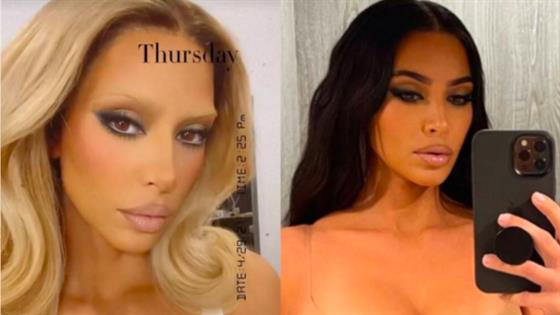
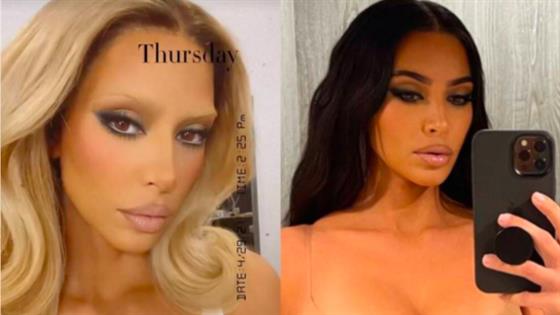
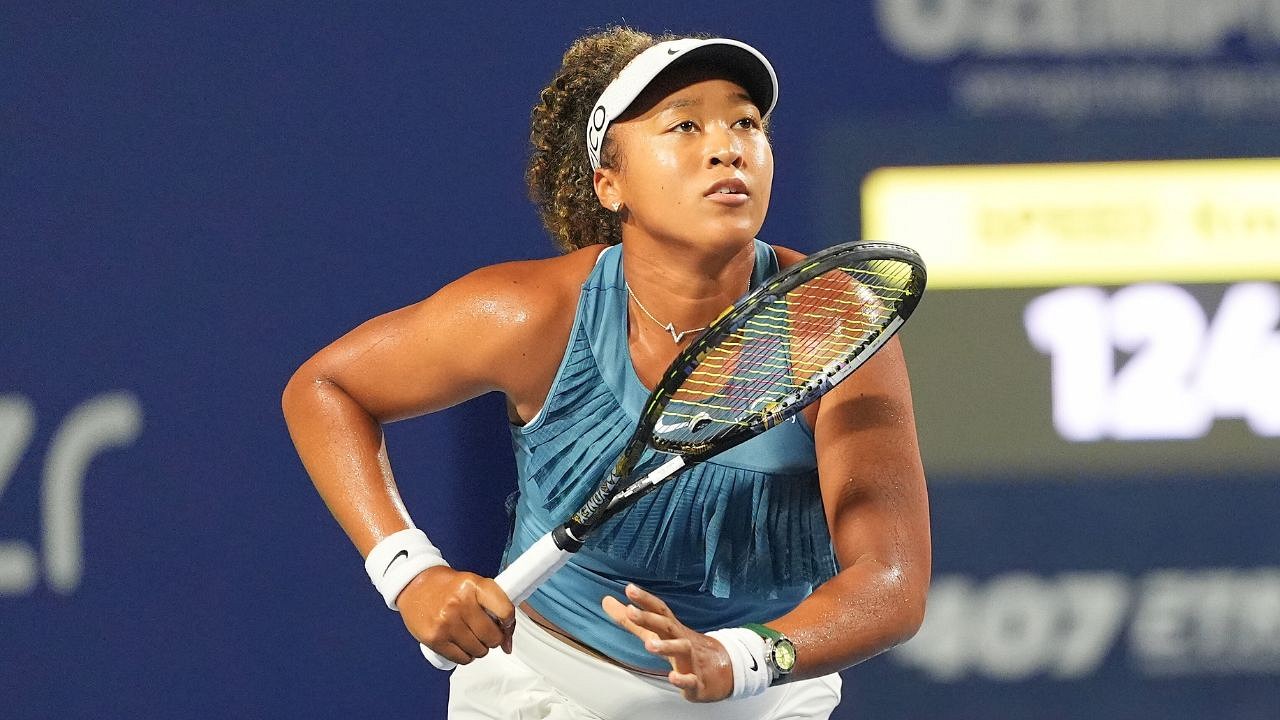
“It’s O.K. to not be O.K.,” Naomi Osaka famously wrote in 2021. That year, Osaka courageously declared to the world that she would be stepping away from tennis to take care of her mental health. She shared that after winning her first Grand Slam in 2018, she suffered from anxiety and depression.
Advertisement
Osaka’s decision to withdraw from the 2021 French Open and temporarily step away from tennis to focus on her mental health left many puzzled at the time. However, many also lauded her for taking the brave decision despite the stigma surrounding mental health issues.
According to Ryan Clark, her choice to prioritize her well-being over competition helped ignite a broader, much-needed conversation about the intense pressures athletes face and the significance of mental health and self-care in professional sports.
“I think Naomi Osaka is a very necessary human. As an athlete. Unfortunately, there are these people who go through these things publicly that allow the entire sports world to learn, and she has just been chosen to be that one. What she did at the French Open years ago, stepping away and saying, ‘I gotta focus on myself.’ That was groundbreaking.”
Lauding her for her openness in the face of personal struggles, Clark added:
“And then to explain why she did it. You know that by choosing to be open about it, there’s going to be criticism, there’s going to be disappointment, even in explaining it, there’s going to be criticism.”
Adding to her struggles, Naomi also underwent postpartum complications due to her “traumatic” birth experience. Osaka welcomed her daughter, Shai, in July 2023, marking a deeply meaningful chapter in her life.
Naomi Osaka’s struggles continue
She described motherhood as “so fulfilling,” but also candidly acknowledged the challenges of juggling her return to professional tennis with the demands of being a new mom. Osaka admitted the transition was “tough,” underscoring the critical role of a strong support system, and noting that raising a child truly “takes a village.” Once she returned to the court, she admitted, “I don’t feel like I’m in my body.”
“And then she had a baby. And I think for female athletes, when you give birth to a child, it’s so much different than it is for us… I think it’s super cool of her to let us see it because so many people hide it,” Clark said on the Pivot podcast.
The former world No. 1 continues to navigate the emotional and physical challenges of her return to tennis. In May, she was visibly emotional during her media interview after Osaka fell in the first round of the French Open to Spain’s Paula Badosa. Despite a promising start, Osaka’s performance unraveled with 54 unforced errors and five double faults, hindered further by blisters on her hands caused by the clay surface.
Last week, the Japanese player suffered a tough 3-6, 6-4, 6-4 loss to Russia’s Anastasia Pavlyuchenkova at Wimbledon. It marked yet another early exit for Osaka, who hasn’t advanced past the third round of a Grand Slam since winning her last major title at the Australian Open in January 2021.
After her latest Wimbledon loss, Osaka was candid about her frustration: “Yes, [I feel closer to a deep run], but honestly, right now I’m just really upset. I’m just going to be a negative human being today. I’m so sorry. I have nothing positive to say about myself, which is something I’m working on.”
Health
How some veterans are using recreational activities for mental health
PEWAUKEE, Wis. — Transitioning out of the military and into civilian life can put a toll on mental health. According to the most recent data from Veteran Affairs, there were 136 veteran suicides in Wisconsin in 2022 and suicide was the 12th leading cause of death for veterans in 2022. What You Need To Know Jeremy […]


PEWAUKEE, Wis. — Transitioning out of the military and into civilian life can put a toll on mental health.
According to the most recent data from Veteran Affairs, there were 136 veteran suicides in Wisconsin in 2022 and suicide was the 12th leading cause of death for veterans in 2022.
Jairo Javier enlisted in the Marines in 2014 when he was only 17-years-old.
“My uncle was a Marine. I idolized him as a kid growing up. So, I always had a desire to be a Marine, even though I did not fully understand what that fully entailed,” said Javier.
Javier served nine years total, six of which were active duty and three years in the reserves. He said he misses many things about it.
“The brotherhood, the comradery, the high stakes environment, just the intensity behind the job,” said Javier. “You don’t truly appreciate it until after you leave. At least that was my case.”

(Spectrum News 1/Cody Taylor)
When Javier retired from the military, he had taken up skydiving as a sport to keep him busy.
Now, he says he spends a lot of his free time out on the water boating.
“Regardless of what background you have, getting out on a boat and coasting across the water or floating on the water is something that is a stress reliever,” said Javier.
Jeremy Lyon works for the division of veterans’ benefits at the Wisconsin Department of Veterans Affairs.
He said the military experience runs deep and it can be difficult to transition out of the military.

(Spectrum News 1/Cody Taylor)
“There’s that fundamental fact that you are now missing that fundamental mission you were a part of and missing that team and the comrades you had besides you,” said Lyon.
He said it is important veterans know what resources are available or to at least find a sense of community when they exit the military.
“I have heard of a number of veterans who go fishing, go boating, go horseback riding, these are all great experiences,” said Lyon. “They bring us together as a community, they give you a peer network of other veterans to talk to.”
While Javier said he found boating to be a good pastime, Lyon said veterans can also get involved with the American Legion or one of the other veterans’ groups in the community.
Health
Century of School Sports
MHSAA marks a century of prioritizing health and safety in school sports across Michigan. From its inception, the organization has driven initiatives alongside defined health guidelines, addressing issues like head injuries, heat management, and cardiac incidents. Executive directors have promoted mental health awareness and implemented policies to ensure safety through comprehensive physical assessments and emergency […]



MHSAA marks a century of prioritizing health and safety in school sports across Michigan. From its inception, the organization has driven initiatives alongside defined health guidelines, addressing issues like head injuries, heat management, and cardiac incidents. Executive directors have promoted mental health awareness and implemented policies to ensure safety through comprehensive physical assessments and emergency action plans. Insurance programs supporting youth in catastrophic situations have also been foundational. As conversations around sports often overlook these issues, the MHSAA remains committed to keeping athlete safety at the forefront.
By the Numbers
- MHSAA introduced updated physical forms in 2011, incorporating family health histories.
- Since 2015-16, MHSAA has mandated reporting of all potential head injuries among athletes.
State of Play
- MHSAA continues developing policies for heat and humidity to enhance hydration practices during activities.
- The organization has integrated mental health training in annual meetings and promoted suicide prevention initiatives.
What’s Next
The MHSAA plans to further refine safety protocols and expand educational resources for coaches, focusing on emerging health issues and athlete well-being. Upcoming initiatives may also explore innovative approaches to enhance mental health support and athlete safety in increasingly stress-inducing environments.
Bottom Line
The emphasis on health and safety within school sports is essential for sustaining athlete participation and success. The MHSAA’s proactive stance ensures that athlete well-being remains a priority, reinforcing that safety measures are foundational to any successful sports program.
Health
Iga Swiatek's Family Includes an Olympian Father
Polish tennis star Iga Swiatek is ranked #4 in the world and is playing Amanda Anisimova in the Wimbledon final. Her athletic gifts run in the family. She is the daughter of a father who was an Olympian. Advertisement Advertisement Advertisement Swiatek’s dad Tomasz Swiatek, “represented Poland in rowing at the 1988 Olympic Games in Seoul,” […]



Polish tennis star Iga Swiatek is ranked #4 in the world and is playing Amanda Anisimova in the Wimbledon final.
Her athletic gifts run in the family. She is the daughter of a father who was an Olympian.
Advertisement
Swiatek’s dad Tomasz Swiatek, “represented Poland in rowing at the 1988 Olympic Games in Seoul,” according to People.
She also has a sister Agata Swiatek who has some athletic talents.
Agata competed for Poland in that country’s junior tennis, leaving in 2013.
Olympics.com explained the importance of Swiatek’s dad to her tennis career.
In 2020, Iga Swiatek “announced herself to the tennis world when she won the French Open at Roland-Garros without dropping a set throughout the tournament. She was the first Polish player, male or female, to win a Grand Slam singles title,” the site wrote.
Advertisement
“Swiatek’s family had a major influence on her path to success from a very young age. She was born into a sports-oriented family in Warsaw. Her father Tomasz, who represented Poland in rowing at the Seoul 1988 Olympic Games, strongly encouraged her to pursue a career in sports,” Olympics.com reported.
By 2016, she won a major professional tournament before she was even 18.
Her dad spoke to a Polish news site about his daughter, whom he previously coached.
“There are still matches where it’s clear that Iga is struggling from the start, struggling to play her tennis. This hurts me as a parent,” Tomasz Swiatek told Sportowefakty.
Advertisement
“Iga is so intelligent and independent that we don’t even discuss it. I don’t suggest or advise anything. She has coaches for that. I’ve stepped aside,” the dad said. “Tomasz Wiktorowski is responsible for tennis matters, Maciej Ryszczuk for general preparation, and Daria Abramowicz for psychological matters. The team works very well, and they themselves ensure the workload is at the appropriate level.”
Her mother is named Dorota Swiatek, and she is an orthodontist, People reported. Her sister Agata is now an orthodontist as well, according to her bio.
Her parents are divorced.
Related: Iga Swiatek Dating History: Is She Married or Single?
Iga Swiatek’s Family Includes an Olympian Father first appeared on Men’s Journal on Jul 12, 2025
Health
How Wimbledon 2025 Finalists Alcaraz And Anisimova Ace Mental Health
During this year’s Wimbledon, post-match interviews turned into televised therapy sessions, as players revealed internal turmoil. While there is no one way to address mental health issues, according to experts, there are effective measures professional tennis players can take to manage their emotions. Carlos Alcaraz and Amanda Anisimova appear to practice those strategies. “I’ve felt […]



During this year’s Wimbledon, post-match interviews turned into televised therapy sessions, as players revealed internal turmoil.
While there is no one way to address mental health issues, according to experts, there are effective measures professional tennis players can take to manage their emotions. Carlos Alcaraz and Amanda Anisimova appear to practice those strategies.
“I’ve felt down a lot of times on the court and in tournaments. I’m just really happy to have found the right path again and such good joy on the court,” said Alcaraz in a post-match interview. “For me, it is not about winning or losing. For me it’s about having fun playing tennis, have fun stepping on court.”
Alcaraz takes a 24-match winning streak into the finals against Jannik Sinner on Sunday. Anisimova stunned No. 1 Aryna Sabalenka to reach her first Wimbledon final, where she will play Iga Swiatek.
Anisimova took eight months off from tennis to focus on her mental health. She didn’t even pick up a racket for months.
“When I took my break, a lot of people told me that you would never make it to the top again if you take so much time away from the game. And that was a little hard to digest, because I did want to come back and still achieve a lot,” said Anisimova in a post-match interview. “So just me being able to prove that, you know, you can get back to the top if you prioritize yourself. So that’s been incredibly special to me.”
Not since Naomi Osaka opted out of a press conference in 2021 has mental health been such a hot topic in tennis.
After his first-round loss, a sunken Alexander Zverev told reporters he never felt lonelier than he did out on the court and might consider therapy. When asked about Zverev’s despair, Aryna Sabalenka told the Associated Press that she was in treatment for five years.
“It’s really important to be open and to talk about what are you experiencing, because if you’re going to keep it inside, it’s just going to destroy you. I think that’s kind of like something happening to him,” Sabalenka said.
Madison Keys credits therapy with helping her win the 2025 Australian Open.
LaKeitha Poole, assistant athletic director of Sport Psychology and Counseling at LSU, said the destigmatization of therapy has changed in recent years, and more athletes are incorporating mental well-being into their overall performance preparation.
“It’s just like having your athletic trainer, your strength coach, your dietician,” said Poole. “You’re seeing people talking about therapy being a critical component of their recovery process. The stigmatization has shifted things and created safer spaces for people to be able to talk about it. And, I don’t think we’ll ever go back to when people were ashamed.”
Why Some Tennis Players Struggle With Mental Health
LONDON, ENGLAND – JULY 08: Aryna Sabalenka reacts against Laura Siegemund of Germany during the … More
Getty Images
“Tennis is one of the toughest sports out there due to the individual nature of it and how young the professional players are when they turn pro,” said Mark Kovacs, a human performance scientist and CEO of the Kovacs Institute. “Many of them (tennis players) are in their teens, and some of them are in their early teens, and that in itself, creates a whole other level of pressure many other sports don’t have.”
A former All-American tennis player at Auburn, Kovacs also served as senior director of sports science and health for the Cleveland Cavaliers. He understands the unique pressure tennis players face.
“It’s one of the few sports in the world where the players actually hire and fire their coaches, their trainers, their support staff at a very young age. Most team sports, you have general managers, you have coaches that make those decisions for the players,” said Kovacs. “So there’s a whole pressure that comes with being a CEO of your own company . . . And then the challenge in tennis is there’s no guaranteed contracts, so you’re having to win matches to pay your bills, so you don’t have the opportunity of having a bad week or a bad month that immediately affects your bottom line.”
In an interview with the Tennis Channel, Alex de Minaur said, unlike in a team sport, tennis players can’t count on someone to pick up the slack if they’re having an off day.
“Ultimately, you’re out there on your own, right? So you are the one responsible for your own results,” said De Minaur. “There’s no hiding, right? So you’re constantly in the spotlight, and that with the travel, the weeks, the length of schedule, I think, does have an impact on on us as players and and human beings.”
Gen Z More Comfortable Talking About Mental Health
US player Amanda Anisimova reacts as she plays against Czech Republic’s Linda Noskova during their … More
AFP via Getty Images
Poole believes one reason more tennis stars are talking about mental health is that more players are Gen Z.
“People who are part of that generation, broadly, whether they are athletes or not, they’re just much more comfortable talking about mental health,” said Poole. “They have much more of an emotional vocabulary. So, you know, I just think that they’re reframing what does it look like to be an athlete, not particularly playing tennis, but also just being able to be themselves and talk about what’s going on with them as they compete.”
Gen Z is also part of the influencer and the attention economy, in which staying relevant means posting a version of themselves online. Self-promotion, mining for likes, leads to business deals. Yet, TikTok likes provide an artificial connection, followers, not friends.
“There is such a dire issue of loneliness and isolation,” said Weirong Li, CEO of Raw Culture, a media company focused on amplifying narratives of global citizenship to create social change. As a communications coach, Weirong, 26, works with Gen Z professionals.
“In general Gen Z, because we grew up in such an online culture, in tech heavy world, it’s very hard for us to really build deep and genuine relationships.”
Weirong said Gen Z is programmed to rely on tech but wired for human interaction. She noted a video on YouTube for Gen Z on “How do I make friends?” that has millions of views.
“It’s so heartbreaking,” she said. “Meanwhile, the longest longitudinal study from Harvard School of Development found, what’s the secret to the most successful life? The quality and depth of our closest relationships.”
Weirong said Alcaraz’s focus on enjoying himself, friendships, and family keeps him grounded.
LONDON, ENGLAND – JULY 07: The team of Ben Shelton of the United States, parents Bryan and Lisa, his … More
Getty Images
“When the athletes go back home they’re not that superstar, they’re just normal humans. And so it gives them a sense of kind of bringing them down (to earth), decreasing the stress,” Weirong said. “And so just having people who just like, feel like family, are family, comfortable about who you really are, definitely helps you with the anxiety of feeling like you have to behave a certain way.”
Whether it’s Coco Gauff joking about her younger brothers, Ben Shelton lobbying for his sister to get a day off, Djokovic showcasing his daughter’s silly dance, or Anisimova bringing her nephew onto the court after a win, human connections foster emotional well-being.
Performance Anxiety Versus Clinical Mental Health
Japan’s Naomi Osaka reacts as she plays against Russia’s Anastasia Pavlyuchenkova during their … More
AFP via Getty Images
Players who are working on staying focused during big moments are fighting a different beast than someone who is battling clinical depression. Unfortunately, sometimes people conflate the two, and that’s a mistake, says Kovacs.
“A lot of coaches would have the expertise to deal with some of the mental health challenges and create the right environment,” said Kovacs. “The challenge is, just like with coaches, physical trainers, there’s a whole level of expertise that varies in the mental health and sports psychology world.”
Jack Draper, who struggled with match performance anxiety, hired a breathing coach. Daria Abramowicz, a sports psychologist, is an integral part of Iga Swiatek’s team.
“You’ve got to be careful, especially with mental health, just like with physical health, if you work with someone who uses the wrong exercises, the wrong techniques, the wrong strategies, you can actually make a moderate problem to a major problem,” said Kovacs. “It’s like bringing a plumber in to fix an electrical problem. They (the plumber) are highly qualified, but not in that.”
Finding Purpose Beyond The Baseline
LONDON, ENGLAND – JUNE 28: Carlos Alcaraz of Spain looks on prior to The Championships Wimbledon … More
Getty Images
In 2019, Anisimova was a rising teen sensation when, just days before the U.S. Open, her father, also her coach, died of a heart attack. Anisimova struggled and finally decided to address her mental health in 2023.
“I learned a lot about myself, my interests off the court and just taking some time to breathe and live a normal life for a bit,” said Anisimova.
Alcaraz and Anisimova found purpose and meaning outside of tennis, key for an athlete’s mental health.
“Some of them are playing for something, where some of them are playing as someone,” said Poole. “And so if they’re able to anchor their purpose to something bigger, like being a happy warrior or their family, cultural representation, or their personal values, whatever it is, those things we know, research wise, sustain motivation and help support long term mental wellness.”
-

 Technology3 weeks ago
Technology3 weeks agoPet fitness and wellness trends for a healthier and happier dog
-

 College Sports3 weeks ago
College Sports3 weeks agoWAC to Rebrand to UAC, Add Five New Members in 2026
-

 College Sports3 weeks ago
College Sports3 weeks agoA new era of Dickinson hockey begins behind the bench – The Dickinson Press
-

 Motorsports2 weeks ago
Motorsports2 weeks agoWhy Cosmetics are Making Up for Lost Time in Women’s Sports
-

 Health3 weeks ago
Health3 weeks agoFlorida assault survivor shares hope for change with new mental health law
-
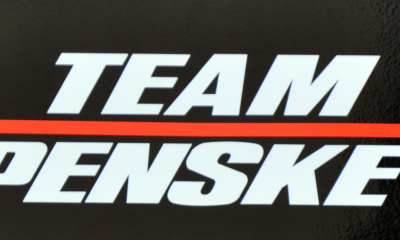
 Motorsports2 weeks ago
Motorsports2 weeks agoTeam Penske names new leadership
-

 Sports7 days ago
Sports7 days agoNew 'Bosch' spin
-

 Motorsports3 weeks ago
Motorsports3 weeks agoNASCAR This Week – Patriot Publishing LLC
-

 Youtube2 weeks ago
Youtube2 weeks agoBREAKING: NBA MVP Shai Gilgeous-Alexander signs the RICHEST annual salary in league history
-
Health3 weeks ago
McDonald named volleyball assistant coach



























